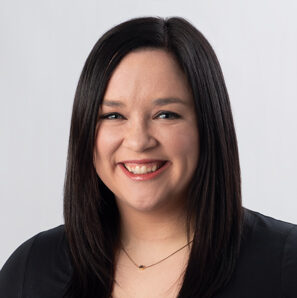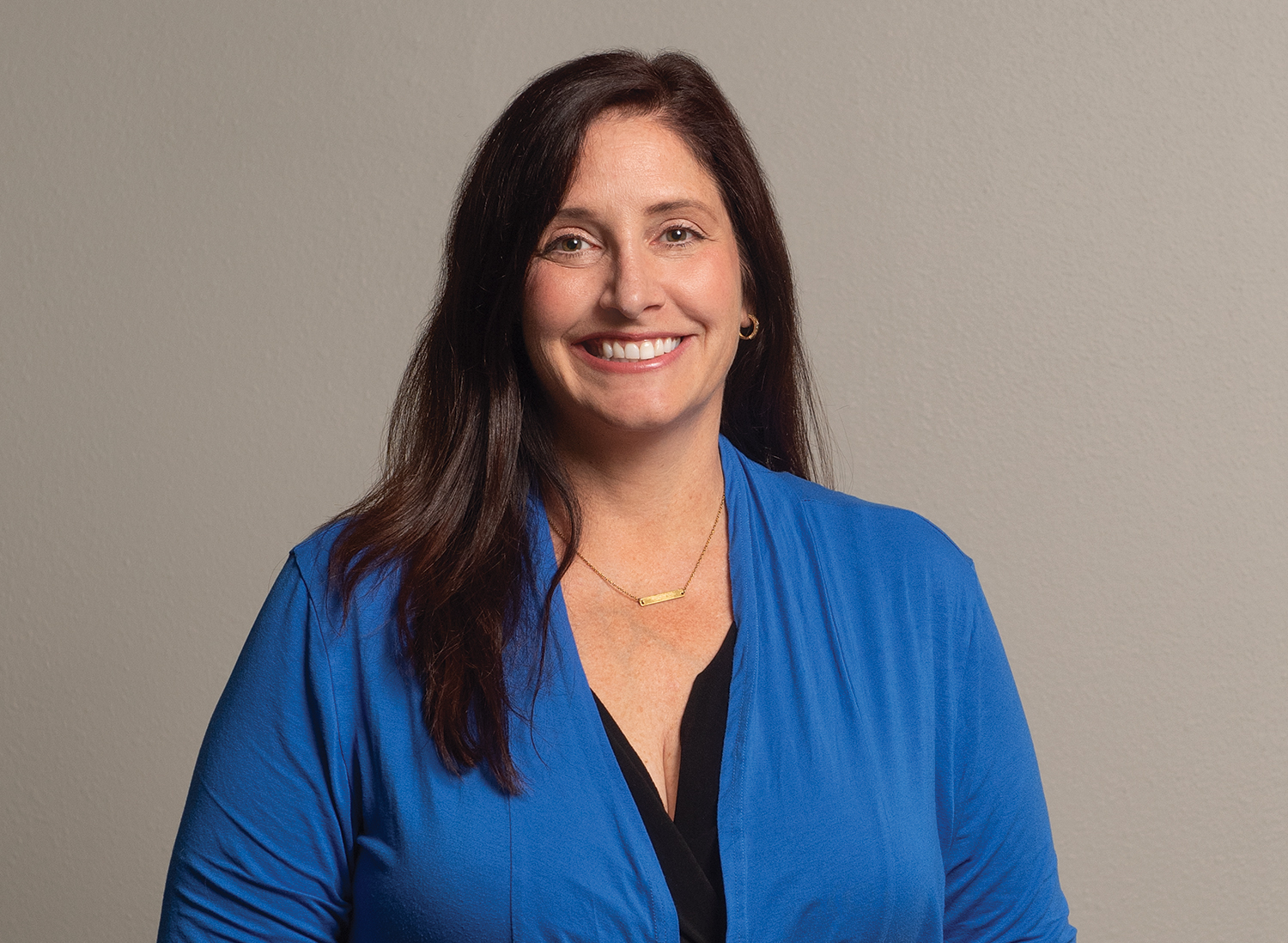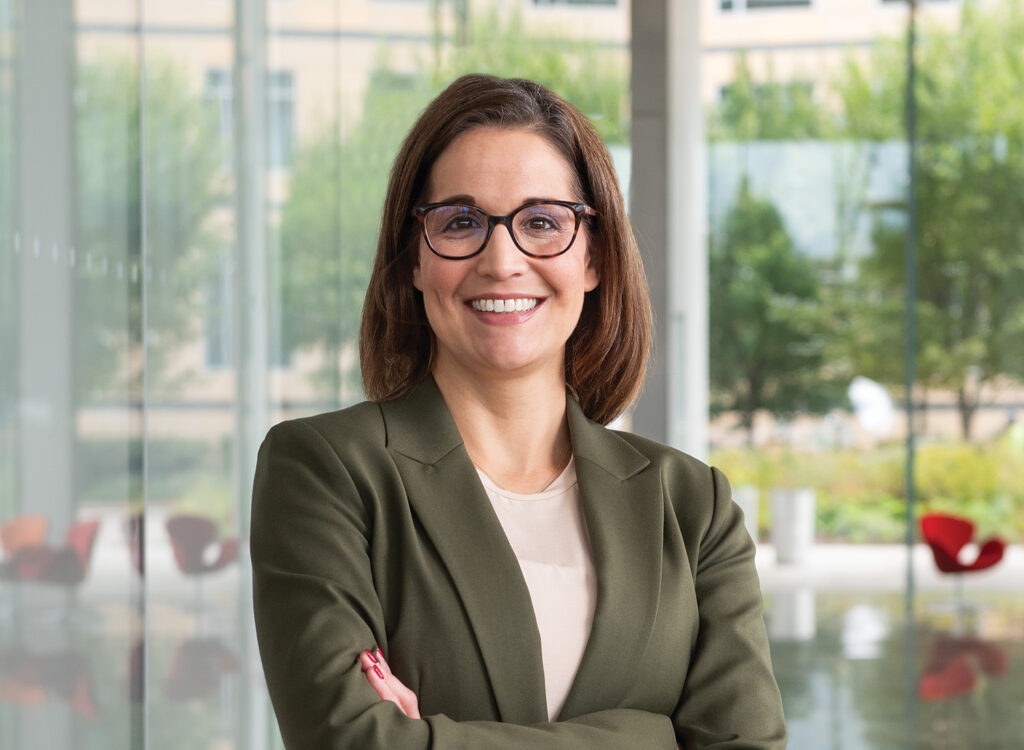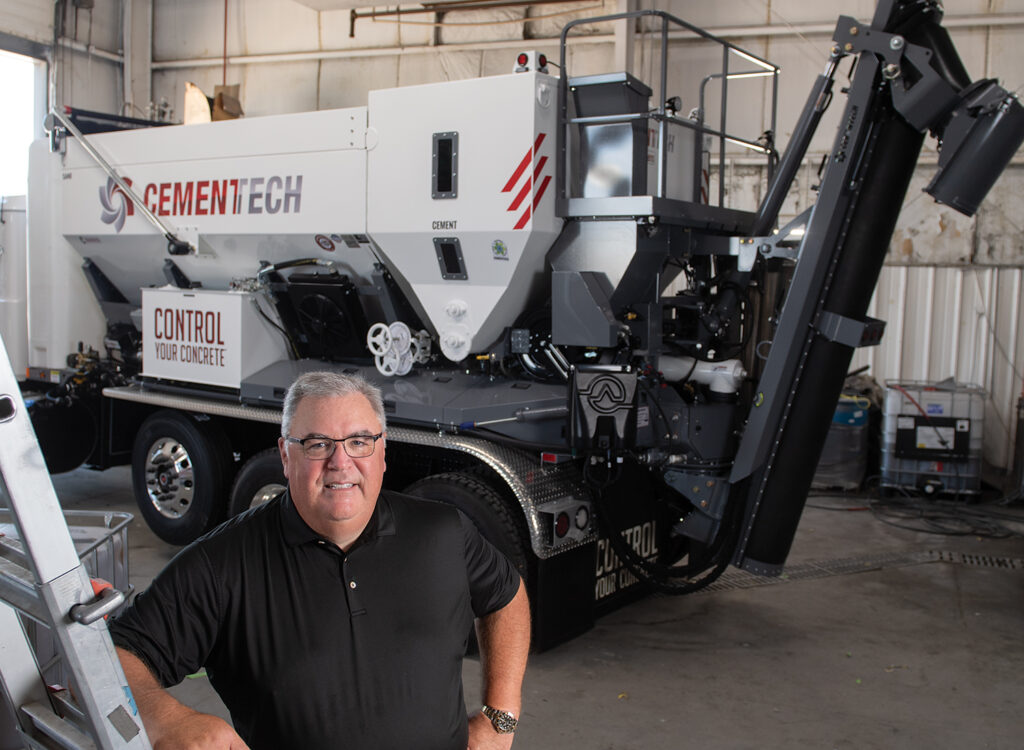A Closer Look: Kelly Hannan
CEO, Ellipsis

Macey Shofroth Jul 4, 2025 | 6:00 am
5 min read time
1,279 wordsA Closer Look, Business Record InsiderKelly Hannan feels like she’s from everywhere.
She was born in Rochester, Minn. Her family spent time in Waterloo and Minneapolis before moving to Urbandale when she was 16. She attended college in Pella and studied overseas for a time. She now lives in Dallas Center.
“I’m a person that feels like home is where I am,” she said.
Now, Hannan’s professional life has taken her to a role where she helps youth find safe, comfortable places that might feel like home. She succeeded Chris Koepplin as CEO of Ellipsis on April 28. Ellipsis is a Des Moines-based nonprofit that provides services like behavioral health support and residential care for children and families in need. Hannan previously worked as chief operating officer at Iowa Primary Care Association.
In her new role, Hannan is guiding the organization as it expands its services and provides more spaces for children to feel safe and cared for.
The Business Record sat down with Hannan to catch up on her first two months with Ellipsis.
These responses have been lightly edited for brevity and clarity.
What drew you to Ellipsis’ mission?
I have always been incredibly passionate about kids and families. I have several nieces and nephews in addition to my boys. I have personal connections in my family to the foster care system and kids with special needs. When I learned about this position at Ellipsis, I was looking for a new challenge, a place where I could utilize my leadership skills and my knowledge of community health, social drivers of health, the Medicaid system, and use that in a new way that supports kids and families. It was just a great fit not only for my skills but also my heart. I just really believe in the potential of kids. I think it’s so critical, and that’s really what Ellipsis is all about — that potential that kids, no matter what they’ve been through, with the right supports and services and the right people wrapped around them, can achieve their potential.
How did your work at Iowa Primary Care Association prepare you for your current position?
The coalition-building at the Iowa PCA is really strong. That’s a really collaborative organization. We always had the philosophy, and it was really led by our CEO Aaron Todd, that we couldn’t be the only answer. We had to get things done through partnership. That type of leadership and that type of attitude is perfect for the complex environment we find ourselves in. I think those relationships and partnerships are so important. Ellipsis has a lot of strong partnerships with HHS, other providers across the state, law enforcement, schools. We have to be working together. There’s not one service provider that can be the be-all end-all for these kids.
What have your first two months in this position been like?
It’s been a whirlwind. The first month, I was just trying to informally get around and meet as many staff as possible — our program directors, case managers, youth care workers, even interact with some of the kids to the extent possible. Just to get a feel for what a day in the life looks like. That will certainly be ongoing. The other really important thing is I had this overlap with the prior CEO for a month, which was great. I met with a lot of those collaborative partners: HHS, law enforcement, city officials, other providers. A lot of community meetings and getting out and talking to our donors, introducing myself and talking to them about why I took the job and how I’m finding it so far. There has also been a lot of interaction with the senior team here at Ellipsis, who is very tenured, and just doing a lot of listening and learning to understand our services and programs to the extent possible.
What are some of the issues the children of Iowa are facing today? How do you think community leaders can better address those issues?
I feel very humbled to answer that question. I think the main thing is that these kids are complex. No one is like the other. They need individualized care plans and services. One doesn’t always look like the next and so that requires a diversification of services and options for the kids. Sometimes programmatically, different residential programs are set up to do a certain set of things, and we bring in outside services to complement that. An example would be the Pediatric Integrated Health Home program, where you’re integrating some other medical and behavioral health services. People are trying to figure out what the right set of services are, and those need to be invested in. Again, if we believe in the potential of kids, we can’t leave out teens that are getting ready to age out of the system. We have to continue to support them. Ellipsis does that with our supervised apartment living and transition to adult living. We have programs and other providers do as well, but there’s certainly a need for those kids that don’t fit the standard and are referred to in the industry as higher acuity youth. So just more support and services around higher acuity youth that have more complex needs than your average group foster care resident. For foster families or people becoming foster families, there are some programs around specialized foster families that have a higher level of training for these higher acuity youth.
Tell us about some important lessons you’ve learned from children.
Definitely patience. As adults, we think of things in a very logical order. You hear it and then you apply it and you’ve learned your lesson. I think with kids, there’s this trial and error component of learning lessons. I’ve talked with my kids about celebrating failures and mistakes and not shaming about those, because those are how kids are learning. They’ve taught me to be less of a critic, less of a perfectionist, because they’ve shown me that’s how they’re learning when they make a bad choice. And you talk through that like, ‘Why did you make that choice? What did you learn?’ That’s really taught me to be more patient and to understand that we learn from making mistakes and not expect perfection. I truly believe that kids need to know that they’re good inside and they’re not defined by their behaviors.
What do you hope to accomplish with Ellipsis in your first year as CEO? The years beyond?
In the first year, I’m hoping to continue to stabilize our programming. Ellipsis has been through tremendous growth the last five years or so with the merger of Youth Emergency Services & Shelter and Youth Homes of Mid-America, and the integration of those businesses takes time. We’re opening a new girls qualified residential treatment program and supervised apartment living over on Meredith Drive, and that’ll happen at the end of July or early August. It’s part of our Hopeful Spaces campaign and that’s just about giving these kids the spaces that they deserve to really thrive. Then we’re just looking at continued ways to diversify our programming and meet the needs of the community. There’s some other residential treatment options that we’re exploring that provide more specialized, higher levels of care. Just continuing to provide high quality residential and behavioral health services to our kids and community is my goal.
At a glance
Age: 49
Hometown: Dallas Center
Family: Two sons; Ziggy, age 6 and Abe, age 12
Education: Bachelor’s degree in accounting from Central College and MBA from the University of Iowa
Activities: Pickleball, reading, walking her dog, bike riding with kids, supporting the Minnesota Timberwolves
Contact: kelly.hannan@ellipsisiowa.org

Macey Shofroth
Macey Shofroth is the Fearless editor at Business Record. She covers gender, nonprofits and philanthropy, HR and leadership, diversity, equity and inclusion.









